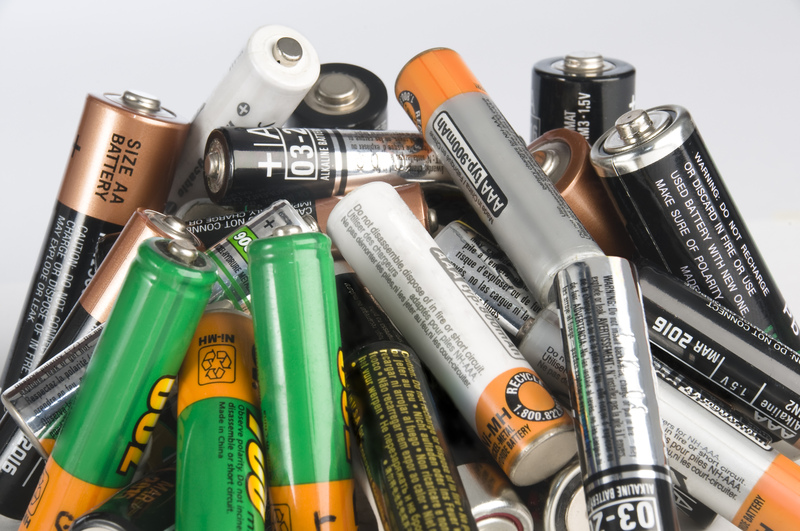Sustainability Tips for Old Concrete
Posted on 04/08/2024
Concrete is one of the most widely used materials in construction, known for its durability and strength. However, producing new concrete comes with a considerable environmental impact. Fortunately, there are several sustainability tips one can apply to old concrete to extend its life and reduce its ecological footprint. In this article, we'll explore various ways to make your old concrete more sustainable.
Understanding the Environmental Impact of Concrete
The production of concrete involves the mining of raw materials like limestone, which is then heated to high temperatures to produce cement. This process emits a significant amount of carbon dioxide (CO2) and other pollutants into the atmosphere. By focusing on sustainability, we can mitigate these impacts by making old concrete last longer and using it more efficiently.

Assess and Repair, Don't Replace
Before you consider replacing old concrete, evaluate its current condition thoroughly. Minor cracks and surface defects can often be repaired rather than opting for a full replacement. There are a variety of repair products available, such as epoxy injections for cracks and overlays for worn surfaces. By repairing existing concrete, you save on the energy and resources that would be required to produce new concrete.
Use Eco-Friendly Sealants and Coatings
Sealing old concrete can protect it from further damage due to weather, chemicals, and general wear and tear. Opt for eco-friendly sealants that do not contain harmful VOCs (Volatile Organic Compounds). These green sealants not only extend the life of your concrete but also reduce the carbon footprint associated with maintaining it.
Recycling Old Concrete
If part of your old concrete structure must be replaced, make sure the demolished concrete is recycled. Recycled concrete can be used as a base material for new construction, aggregate for new concrete, or even as riprap for erosion control. Recycling reduces the demand for new raw materials, thus conserving natural resources and reducing waste.
Adopt Permeable Concrete Solutions
Traditional concrete is impervious, meaning it doesn't allow water to pass through. Permeable concrete, on the other hand, allows water to filter through, reducing runoff and promoting groundwater recharge. If you're resurfacing old concrete, consider switching to permeable options to make your surfaces more environmentally friendly.
Implement Energy-Efficient Lighting Around Concrete
When it comes to parking lots, driveways, and other concrete surfaces, energy-efficient lighting such as LED can make a significant difference. These lights use less energy and have a longer lifespan compared to traditional lighting options. Consider solar-powered lights as an even more sustainable option.
Use Sustainable Landscaping Around Concrete
Landscaping around your concrete surfaces can significantly aid in sustainability. Plant native plants that require less water and fertilization. Use mulch to help retain moisture and consider xeriscaping to reduce the need for irrigation altogether. Proper landscaping not only supports the environment but also helps manage stormwater runoff more effectively.
Pros and Cons of Sustainable Practices for Old Concrete
Pros:
- Environmental Benefits: Reduced CO2 emissions and conservation of natural resources.
- Cost Savings: Repairing and recycling old concrete can often be cheaper than full replacement.
- Durability: High-quality repairs and eco-friendly sealants can extend the life of existing concrete.
- Water Management: Permeable concrete solutions help in effective stormwater management.
Cons:
- Initial Costs: Applying sustainable practices may have higher upfront costs.
- Maintenance: Sustainable landscaping and permeable concrete might require more maintenance.
- Availability: Eco-friendly products and services might not be readily available everywhere.
Key Tips
1. Conduct Regular Inspections: Frequent inspections can help you identify and repair issues before they require major work.
2. Choose High-Quality Repair Materials: Opt for durable and eco-friendly repair materials.
3. Recycle Waste: Always recycle demolished concrete to minimize waste.
4. Upgrade to Permeable Surfaces: Swap out impervious surfaces for permeable ones wherever possible.
5. Eco-Friendly Sealants: Use sealants free of VOCs to coat your old concrete.
6. Smart Landscaping: Use native plants and xeriscaping around concrete surfaces.

Conclusion
Making old concrete more sustainable is an effective way to significantly reduce your environmental impact. By repairing instead of replacing, using eco-friendly products, and recycling, you can extend the life of your concrete structures while contributing to environmental conservation. Additionally, adopting practices like permeable concrete solutions and sustainable landscaping can further enhance the sustainability of your old concrete.
Takeaways
- Evaluate Before Replacing: Understand the condition of your old concrete and prefer repair over replacement when possible.
- Eco-Friendly Products: Use environmentally friendly sealants and repair materials.
- Recycle: Ensure that any demolished concrete is recycled properly.
- Permeable Options: Consider using permeable concrete to enhance water management.
By following these tips and practices, you can ensure that your old concrete remains functional and eco-friendly for years to come.
Latest Posts
Innovations Aiming to Reduce Ocean Waste
Reducing Waste in Christmas Celebrations




 020 3743 9508
020 3743 9508


